Biden and Starmer unite against Putin nuclear threat but delay decision on missiles
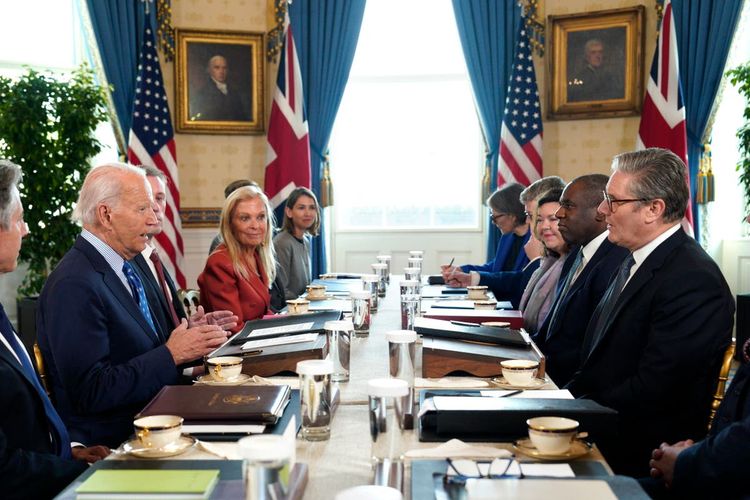
Subscribe For Expert Insights From Westminster
Subscribe For Our Free Westminster Update Email
Subscribe For Your Free Westminster Update Email
President Joe Biden and Sir Keir Starmer met for discussions at the White House on Friday evening as tensions rise from both Ukraine and Russia regarding the possible deployment of long-range missiles in the conflict.
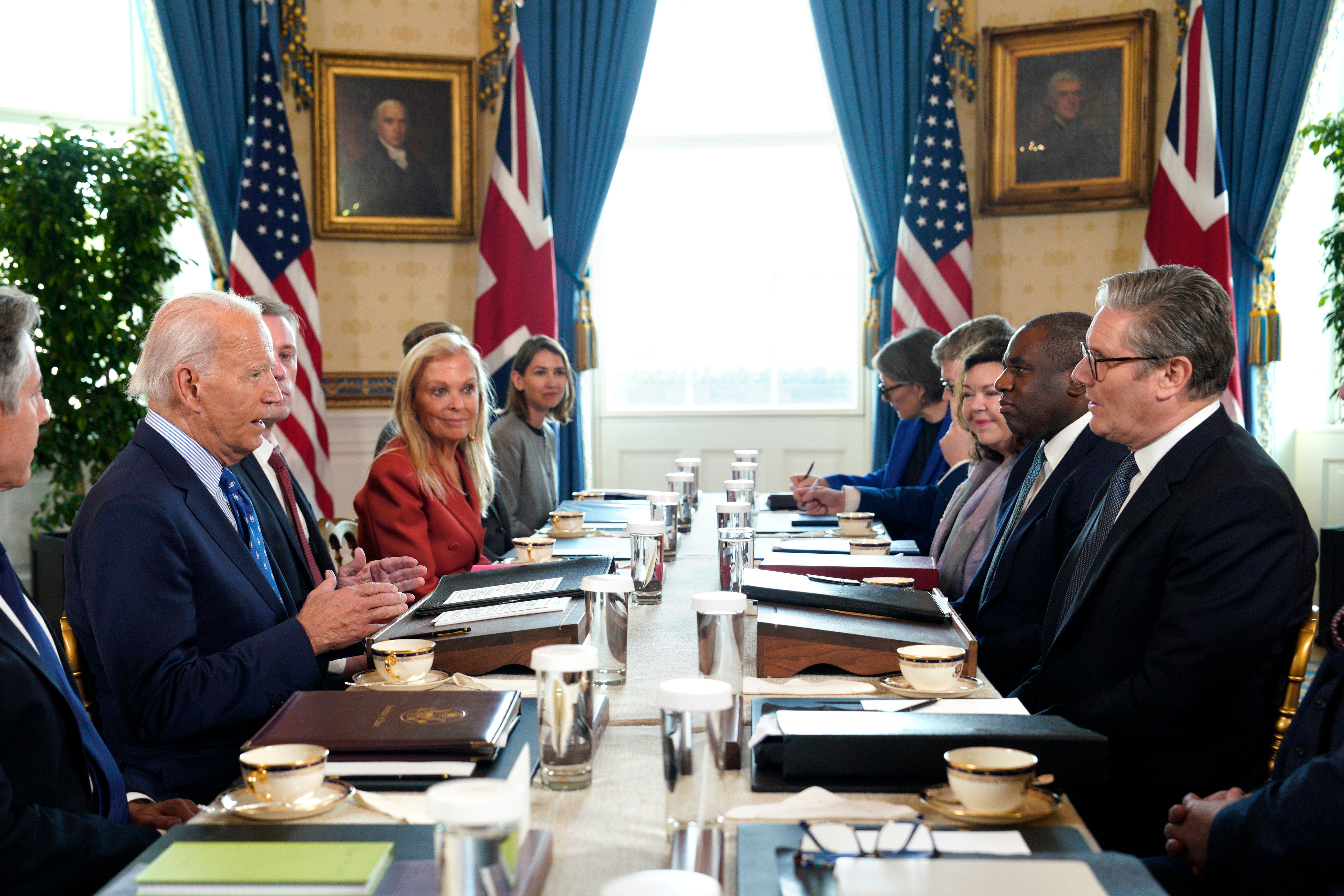
The leaders gathered amidst the looming nuclear threats from Vladimir Putin and the urgent requests from Volodymyr Zelensky, who is seeking permission to deploy Storm Shadow missiles against targets in Russia. However, their discussions were clouded by:
During a break in their meeting, an irritable Biden addressed reporters in the White House's Blue Room. He criticized Sky News for their question, but when asked about the nuclear threats posed by Putin, he stated, "I don’t pay much attention to Vladimir Putin."
The meeting was initially scheduled for two hours but was shortened to 90 minutes before Starmer arrived, and then it was cut even shorter as the two leaders refrained from reaching a conclusive agreement on the important matter of the Storm Shadow missiles.
As Mr. Biden and Sir Keir got ready to meet, President Zelensky ramped up the urgency by sending a direct message to both leaders on X.
Mr. Zelensky commended the previous efforts of Boris Johnson during their meeting on Friday at a summit in Kyiv.
Mr. Zelensky stated: "We have entered the third year of a major conflict. Despite the tremendous loss of life, destruction, and numerous war crimes committed by Russia, Putin continues to have the resources to wreak havoc in Ukraine at will. He can purchase and manufacture missiles, bombs, and artillery while also making threats to the international community. He seems to believe the world will accept his delusions."
"We require air defense systems such as Patriots, which are available globally and have been anticipated from our allies for some time. However, whenever we request these systems, the response is consistently, 'We are still working on it.' Meanwhile, time goes by, and Russian missiles along with Iranian drones keep threatening our airspace and putting our citizens in danger."
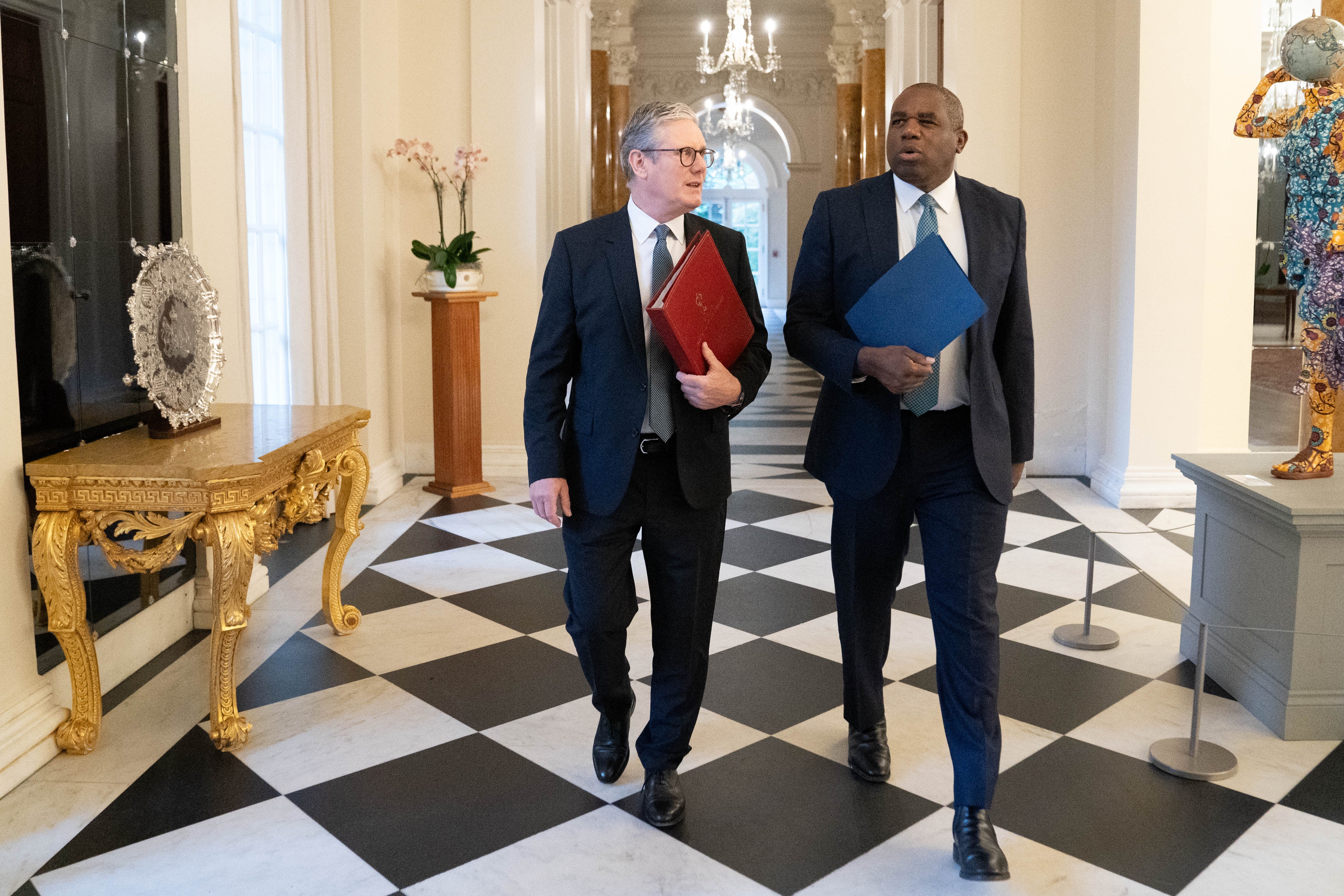
In addition to increasing the demands on Sir Keir and Mr. Biden, Mr. Johnson expressed: “It’s crucial for Ukraine to effectively protect itself by halting the terrible Russian assaults involving glide bombs and now missiles from Iran. It’s clear that they need to be able to deploy Storm Shadow, Scalp, and ATACMS against targets within Russia as soon as possible.”
On Friday, Mr. Zelensky met with Foreign Secretary David Lammy and US Secretary of State Antony Blinken in Kyiv for discussions.
While the prime minister and his team were traveling across the Atlantic, Mr. Putin issued a warning of potential conflict with NATO if the alliance consented to the deployment of Storm Shadow missiles against targets in Russia.
Later, there was a significant incident involving the removal of six British diplomats from Moscow.
The Storm Shadow missiles can hit targets situated at least 250 km (155 miles) away. Although the UK and France have provided these missiles to Ukraine, they have not yet allowed their use against targets in Russia. Additionally, U.S. logistical support is necessary for this permission. President Zelensky considers this step crucial in order to curb the long-range strikes from Putin's army.
Before arriving in Washington, Sir Keir expressed a bold stance regarding Mr. Putin's threats of military action.
He stated to reporters, "Russia initiated all of this. They are responsible for the conflict and are behaving unilaterally. Ukraine clearly has the right to defend itself."
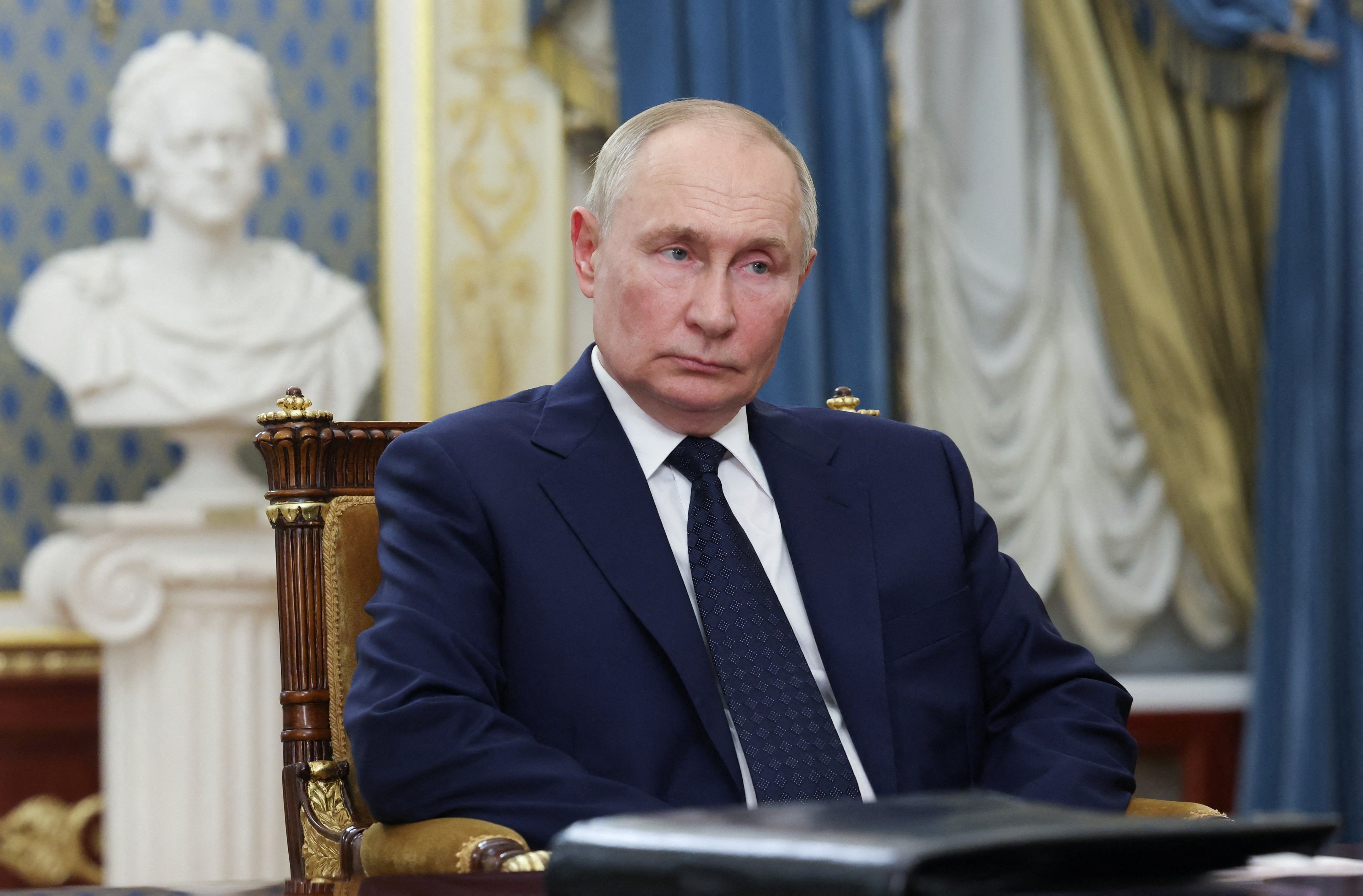
"My goal is to ensure that our tactical conversations are framed within the right strategic perspective regarding the situation in Ukraine. Similarly, there are tactical matters concerning the Middle East that also need to be viewed through a strategic lens, rather than just focusing on the tactical aspects."
Regarding the recent expulsions of diplomats, a representative from the Foreign Office commented, "The claims made by the FSB regarding our personnel are utterly unfounded. Last month, the Russian government canceled the diplomatic credentials of six British diplomats stationed in Russia as a reaction to actions taken by the UK government in response to Russian state-sponsored activities in Europe and the UK. We stand firm in our commitment to safeguarding our national interests."
At the same time, former First Sea Lord Admiral Lord West cautioned that the UK and US should not retreat in the face of Russian hostility, especially after all the attention this situation has received.
"The message it would send to Putin would be: 'They really have to respect my boundaries' – and that's not a message we want to convey," he explained.
We're discussing huge risks here—really significant ones. It's crucial for people to approach this issue thoughtfully and calmly, considering all possible outcomes if specific events occur. Unfortunately, I'm not convinced that this is always happening. Being overly enthusiastic or reckless regarding potential large-scale conflicts, like a war between Russia and NATO, is not wise.
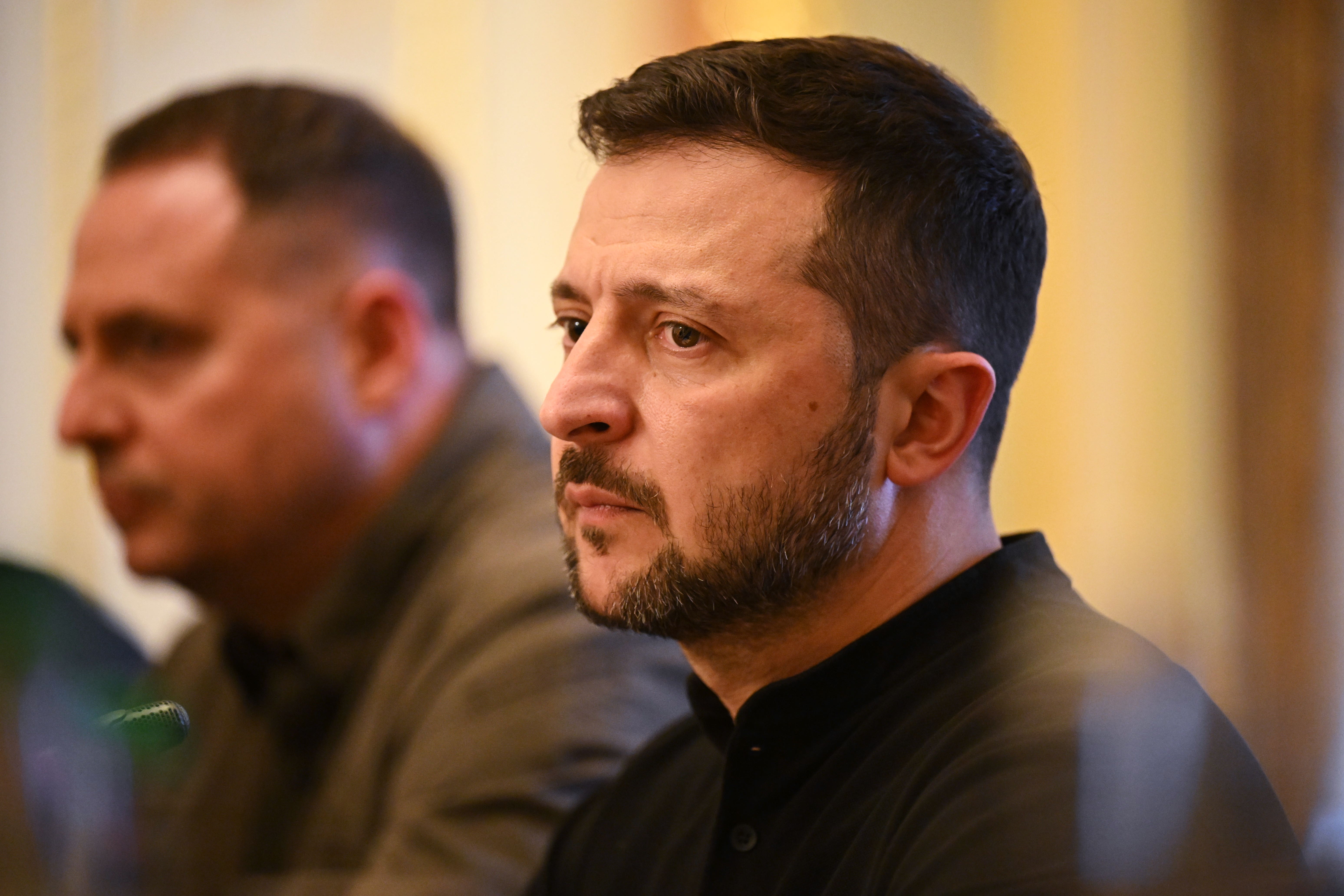
John Foreman, who was the UK's defense attaché in Moscow between 2019 and 2022, mentioned, "We don't have a clear understanding of how Putin makes decisions... and it's hard to accurately forecast his responses."
"This, along with Russia's distorted views on threats and the absence of diplomatic communication, has heightened US worries about the possibility of unintended escalation. These concerns cannot be ignored or simply wished away."
Sir Bill Browder, a vocal critic of Putin and leader of the Global Magnitsky Justice campaign, brushed off the threats made by Putin. He stated, "If he thinks he can take on NATO, he’s got another thing coming. He would be defeated in just a few days."
I believe that all his talk about red lines is just empty rhetoric. He lacks the ability to defeat a poorly armed neighbor, so there's no way he could stand a chance in a conflict with NATO. As I see it, this is all just grandstanding.
Oleksandr Vasiuk, a member of parliament from the partially Russian-occupied area of Zaporizhzhia in Ukraine, has raised concerns that Moscow is currently relocating its military resources—often utilized for attacks on Ukraine—further into Russian territory to avoid detection and strikes from Kyiv's forces.
Mr. Vasiuk stated that any hold-up or ban on employing long-range Western missiles only makes things more difficult for Ukrainian troops.
A source from the Ukrainian presidential administration, who preferred to remain anonymous, informed The Independent that Kyiv has been using domestically produced arms for attacks on military installations and oil refineries well within Russian territory. Meanwhile, they are utilizing Western weapons to target areas in Ukraine that Mr. Putin now asserts are part of Russia.
"According to their reasoning, both we and the West have already gone beyond that 'red line,' despite their earlier warnings about taking action against us. They didn’t act then, and they won’t act now," the aide stated, expressing skepticism that "even a delusional Putin" would genuinely consider going to war with NATO.



























































